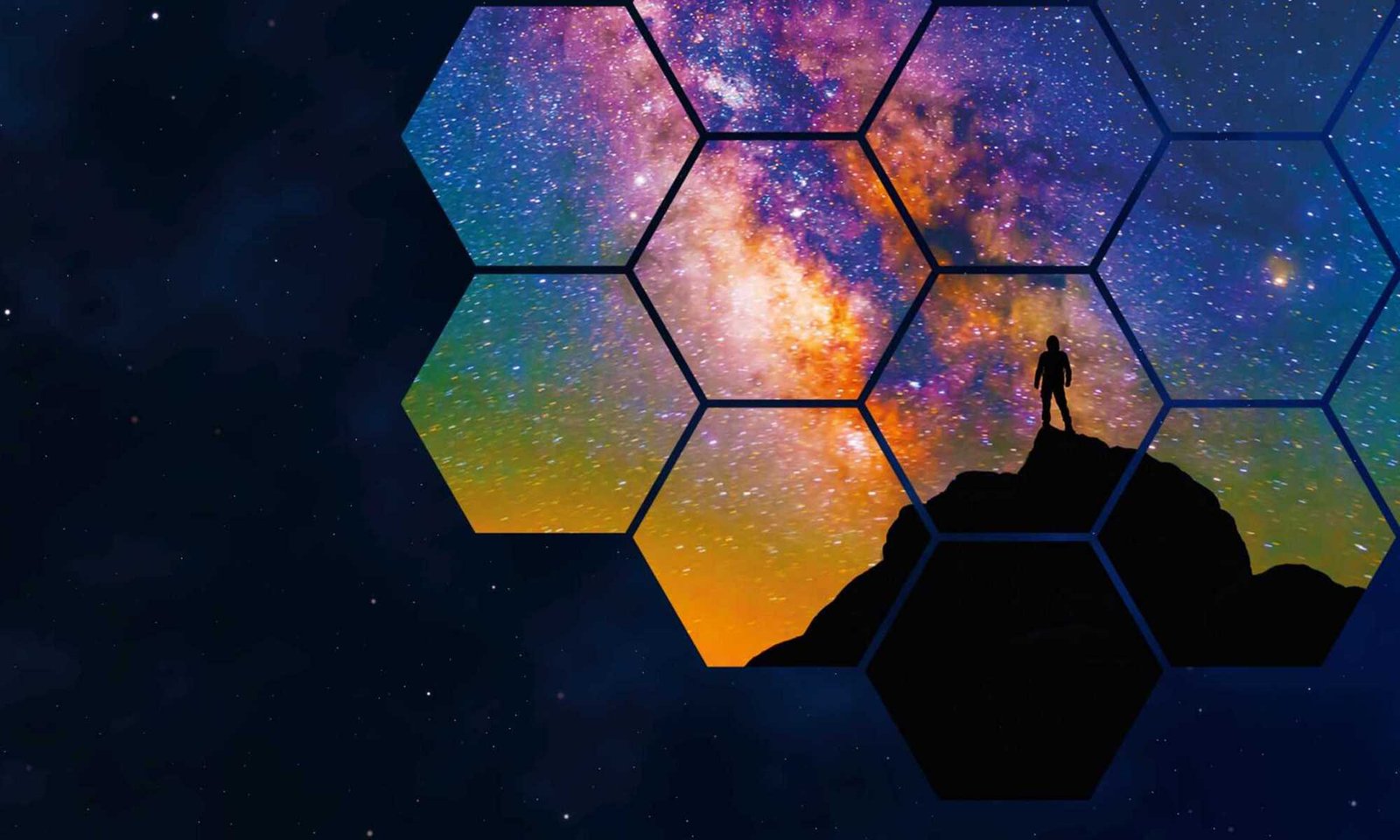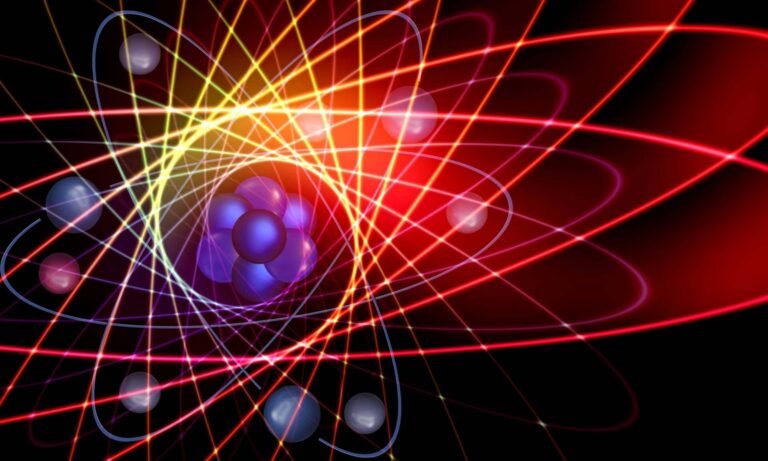The concept of the void holds a significant place in the discourse of Metaphysics, often serving as a foundation for various philosophical inquiries. At its core, the void can be understood as the state of emptiness or nothingness, a concept that has been contemplated by thinkers across different traditions. In Western philosophy, early pre-Socratic philosophers, such as Parmenides, notably examined notions of being and non-being. Parmenides famously posited that “what is, is,” suggesting that any consideration of the void contradicts the very nature of existence, an assertion that has shaped subsequent metaphysical discussions.
In contrast, Eastern philosophical traditions present a nuanced perspective on the void. In Buddhism, for instance, the concept of ‘śūnyatā’ or emptiness suggests that all phenomena are empty of intrinsic existence. This understanding does not imply nihilism but instead emphasizes the interconnectedness of all things, allowing for a more profound insight into the nature of reality. Similarly, Daoism embraces the void, recognizing it as a space of potentiality where creation and existence transpire. The Daoist notion reflects a harmonious relationship with the void, thus suggesting that emptiness is not merely the absence of substance but an integral element of existence.
Furthermore, the void has persisted as a recurrent theme throughout metaphysical inquiries into the nature of reality. Both ancient and contemporary philosophers grapple with the implications of the void on existence, often raising questions about the essence of being. Whether viewed as a source of fear, a philosophical puzzle, or a space of unlimited potential, the void continues to capture the imagination of thinkers. Understanding the void and its varied interpretations across different philosophical traditions enhances our comprehension of existence and invites deeper exploration into the complexities of reality.
The Void in Eastern Philosophical Traditions
The concept of the void holds significant importance in Eastern philosophical traditions, particularly within Buddhism and Taoism. In Buddhism, the term śūnyatā, or emptiness, is a foundational principle signifying the absence of inherent existence in all phenomena. This tenet posits that everything is interdependent and lacks an independent essence. Understanding śūnyatā helps practitioners realize that attachment to self and external realities causes suffering. Cultivating emptiness dissolves rigid self-perceptions, leading to deeper insights into existence and the interconnectedness of all beings. Ultimately, this realization paves the way toward Nirvana – liberation from suffering and the cycle of rebirth.
Similarly, Taoism embraces the idea of the void, though its interpretation may differ slightly. In Taoist thought, the void is often associated with the Tao, a primordial force that underlies all reality. This mystical dimension highlights the importance of yielding to the natural flow of life and recognizing the limitations of the ego. The Tao Te Ching, a central text in Taoism, emphasizes the significance of non-action (wu wei) and encourages individuals to embrace simplicity and spontaneity. Through these practices, adherents of Taoism discover that the void is not merely an absence but a vital source of creativity and potential.
In both Eastern philosophies, the void is understood as a transformative state that fosters personal development and, ultimately, enlightenment. By letting go of rigid categorizations and cultivating an appreciation for impermanence, individuals can experience profound shifts in their consciousness. This contrasts sharply with many Western philosophical narratives, which often emphasize the existence of an independent self and fixed truths. The invitation to engage with the void thus presents unique opportunities for growth and understanding in the realms of spirituality and existential exploration.
The Void in Western Philosophy and Science
The concept of the void has been a significant topic within Western philosophy, particularly in existentialist thought and modern metaphysics. Renowned philosophers such as René Descartes, Martin Heidegger, and Jean-Paul Sartre have articulated their perspectives on existence, being, and the notion of non-being, offering rich insights into the implications of the void. Descartes, known for his foundational role in early modern philosophy, famously postulated “Cogito, ergo sum,” asserting that doubt and thought confirm one’s existence. In this framework, the void represents not only uncertainty but also a necessary backdrop against which existence is defined.
Thus, the essence of being becomes evident through the recognition of that which is not.
Heidegger’s exploration of being further deepens the philosophical engagement with the void. He posits that an understanding of being necessitates an acknowledgment of non-being, or nothingness. For Heidegger, the void is integral to the human condition; it highlights existential anxiety and the search for meaning in an uncertain world. Sartre subsequently built upon these foundations, emphasizing the void’s role in human freedom and responsibility. According to Sartre, existence precedes essence, implying that individuals confront an empty void that allows them to create meaning and define their own essence through choices and actions.
The Implications of the Void on Existence and Consciousness
The concept of the void in metaphysical discourse presents profound implications for our understanding of existence and Consciousness. Traditionally regarded as emptiness, the void challenges conventional notions of identity and meaning. Within philosophical paradigms, it posits that existence is not merely a collection of tangible entities but also encompasses the intangible – the absence that shapes our perceptions and experiences. This understanding invites us to reconsider the very nature of being and the essence of what it means to exist.
When individuals confront the idea of the void, they often encounter unsettling feelings that can lead to existential reflection. This confrontation compels a deeper inquiry into one’s own identity. Are we defined solely by our actions and relationships, or do we also emerge from the spaces and gaps in our experiences? This philosophical engagement with the void fosters an enriched awareness of self, drawing attention to the interactions between existence and non-existence. The relationship between consciousness and the void becomes especially significant as it prompts individuals to explore their inner landscapes, examining the nuances of thought, perception, and emotion.
The implications extend to our understanding of purpose and meaning. In recognizing the void, individuals may find clarity amid ambiguity; this insight can be transformative. Rather than perceiving existence as a mere assemblage of matter and experiences, individuals may come to appreciate the complexities inherent in the human condition. The void suggests that within the absence, there exists the potential for growth and understanding. Consequently, the engagement with the idea of the void can lead to an expanded consciousness, encouraging individuals to seek deeper connections with themselves and the cosmos.
Want to Avoid the Void?
To avoid the void, start by building intentional structure into your day. Not just routines, but rituals – small, meaningful acts that remind you you’re alive and choosing how to live. Morning light through the window, a quiet cup of coffee, a walk without your phone. These aren’t just habits; they’re anchors. When time feels like it’s slipping, structure helps you hold on. It’s not about rigid schedules, but about creating moments that feel deliberate, even sacred.
Creative expression is a powerful way to push back. Make something – anything. Write a few lines, sketch a shape, cook a dish you’ve never tried. Creation interrupts the passive drift and reminds you that you can shape your world. It doesn’t have to be brilliant. It just has to be yours. Even a messy attempt at something new can be a spark. The void thrives on silence; creativity makes noise. And when you’re immersed in making, time bends – what felt hollow begins to fill. You remember that you’re not just consuming life, but contributing to it.
Connection matters too. The void feeds on isolation, so reach out. Not performatively, but honestly. A message to a friend, a shared laugh, a moment of vulnerability. You don’t need a crowd – just a few real exchanges that remind you you’re not alone in this strange, beautiful mess. And don’t underestimate the power of small interactions – a smile from a stranger, a brief chat with a barista, a shared joke online. These micro-moments stitch together a sense of belonging.
And finally, lean into discomfort. The void often tempts you to retreat, to stay safe, to avoid risk. But growth lives on the edge of uncertainty. Say yes to something unfamiliar. Let yourself be challenged. When you stretch beyond the familiar, you shrink the space where the void can grow. That’s where life starts to feel real again – where the edges blur and the colors come back. Even fear, when faced directly, can become fuel. And every time you choose movement over stagnation, you reclaim a piece of yourself. Keep doing it long enough, and the void starts to forget your name.
What’s More
The posts in My Blog feature reflective, story-driven pieces rooted in personal and societal insights.
The topics in My Interests explore abstract, philosophical ideas and their cultural and societal impact.
👁️ 5,964 Views















